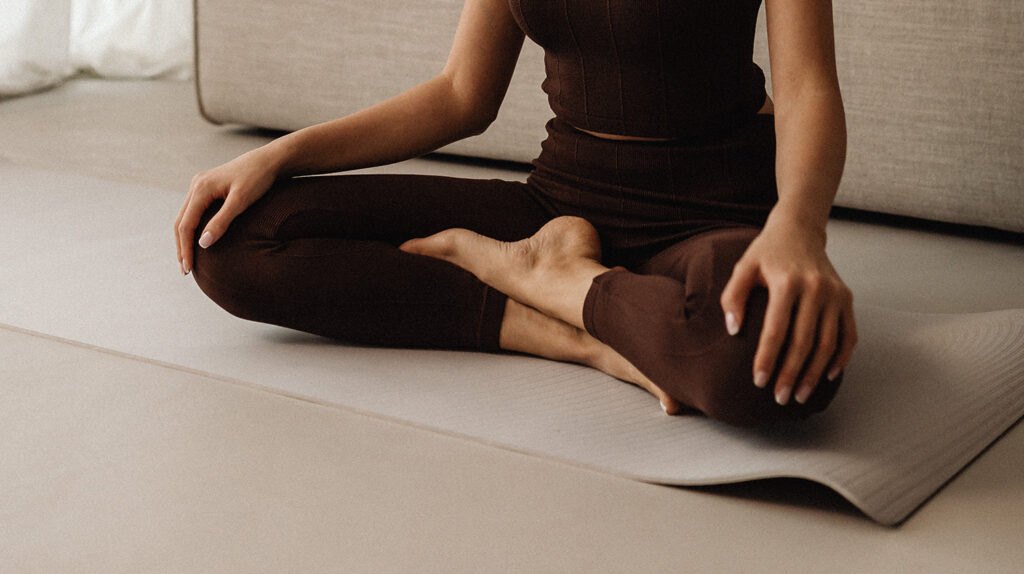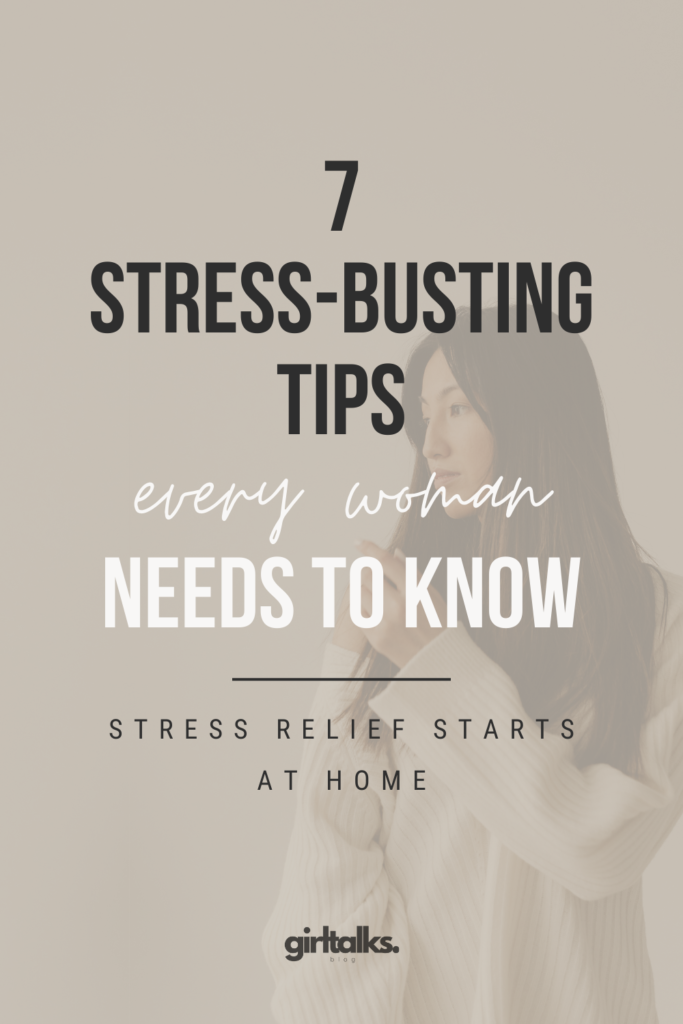Feeling like life’s getting a bit too much? You’re definitely not alone. With work, family, and everything else on your plate, stress can creep up on anyone. The good news is, you don’t need to go anywhere or spend a lot of money on stress relief. There are natural ways to relieve stress at home, like simple, everyday habits that can fit right into your busy life to naturally release stress right from your own home.

Stress is a part of life, but it doesn’t have to run the show. In this article, we’ll explore how becoming more self-aware can help you catch and relieve stress naturally at home before it spirals, how cold showers can instantly boost your mood, and why getting your body moving with home workouts can make the difference. You’ll also learn about the importance of carving out “me time” for self-care, practicing mindfulness to stay grounded, and eating healthy to naturally support stress relief and your overall well-being.
This post shares personal experiences and research on mental health for informational purposes. The recommendations provided have worked for us and may work for you too. However, always consult a healthcare professional before making any changes to your diet or lifestyle. Stay healthy and informed!

Bookmark this post for future reference!
1. Tune into Yourself
Getting in touch with how you’re feeling is the first fundamental step in dealing with stress. When you understand what’s going on inside and learn to spot the first signs of anxiety before it takes over, it becomes much easier to relieve stress overall.
Check In Daily: Just being aware of your emotions can already make a big difference. Take a few minutes each day to ask yourself how you’re doing. Relaxed? Feeling tense? Once spotted unwanted signs of stress and anxiety, you can take action right away and prevent bigger stress from taking over you.
Start a Journal: A more advanced level of daily check-ins would be to jot down your thoughts and feelings. It is a great way to see what’s stressing you out and why. If you do it regularly, it will also give you a good historical perspective on your stress levels over time. You can do it the traditional way or use one of the numerous apps available on the market, like Stoic app.

2. Try Cold or Contrast Showers
Cold showers, though they might seem like additional stress for some, are, in fact, incredibly refreshing and stress relieving. Among numerous other benefits of cold showers, they can help naturally release stress at home because they:
Boost Your Mood: Cold water improves circulation, waking you up and lifting your spirits.
Ease Muscle Tension: Cold showers help reduce inflammation, which can be a relief after a stressful day.
Feel Good Fast: The shock of cold water triggers endorphins, the “happy hormones,” giving you an instant mood boost.
I have a separate article, where I share tips on how you can incorporate this practice into your daily life. Feel free to read it to learn more about this easy and extremely rewarding habit anyone can follow.
3. Move Your Body: Home Workouts
Exercise is a fantastic way to de-stress. You don’t need a gym membership to get moving. If you are new to home workouts, there are some simple hacks on starting home workouts effectively that you can read here. The following examples of the exercises you may consider for stress relief are:
Quick Power Workouts: They’re a fast way to get your muscles working and your heart pumping. Moderately stressing your body, in return, releases mental stress. It’s a simple rule, but it works great each time.
Stretch and Breathe: Yoga, stretching, and similar exercises are great for relaxing your muscles and your mind. For extra relaxation, remember to breathe deeply.
Dance It Out (and my personal favorite): If I had to pick one practice you can try right now, it would be this one. Put on your favorite music and dance like nobody’s watching. It’s a fun, stress-busting way to get moving. In less than 5 minutes, you’ll be amazed at how your mental state has shifted to positive tunes.

4. Make Time for Yourself
“Me time” is crucial for managing stress, especially when you’re always taking care of others. The main part is learning how to say no, setting boundaries with others, and prioritizing yourself and your self-care. Also protecting your time and energy is key to staying mentally healthy.
Try these two practices regularly and see how your stress levels will decrease naturally:
Pamper Yourself: Create a self-care routine that you love, whether it’s a skincare ritual, a relaxing bath, or just enjoying a quiet cup of tea – check more ideas here.
Do What You Love: Spend time on hobbies or activities that make you happy, whether it’s reading, crafting, or gardening.
5. Practice Mindfulness
Mindfulness helps you stay grounded and present, making it easier to handle stress.
Try Meditation: Set aside a few minutes each day to meditate. There’s no right or wrong way to meditate, so just pick the one that works for you. Even just 5-10 minutes can make a big difference in how you feel.
Sleep Meditations: If stress is keeping you up at night, try sleep meditations to help you unwind and get better rest.
Practice Gratitude: Spend a moment each day thinking about what you’re grateful for. It’s a simple way to shift your focus from stress to positivity.
6. Use Breathing Techniques
Practice mindful breathing throughout the day. There are many breathing practices out there you can check out to relieve stress naturally at home. The two techniques I find the most handy and effective are:
Power Breath: double inhale through your nose, followed by a long exhale. Such a breathing technique resembles sobbing. Moreover, your body instinctively acts to calm you down from crying. You can use it on purpose with the same calming and stress relief effect.
The 4-4-4-4 Breathing: This technique involves inhaling deeply while mentally counting to 4, holding your breath for 4 counts, exhaling slowly again for 4 counts, and holding again for the same time.
Both techniques are a quick yet very effective way to calm your mind and relieve stress naturally at home.
7. Eat Well to Feel Well
What you eat can play a big role in how stressed you feel. Stress can cause uncontrollable food or sweet cravings, which are one of the coping mechanisms our body uses to calm itself down. Another risk related to stress and eating is when increased stress and anxiety levels have the opposite effect on your eating and suppress your appetite. Whatever the case is for you, always try to balance your meal intake.
Avoid overeating at all costs: While stress-eating, especially foods high in sugar, may provide temporary relief, overeating will ultimately heighten stress levels and result in feelings of guilt. In the worst-case scenario, it can also impact your physical health and body shape, resulting in additional problems. We’ve all been there.
But make sure you eat: When you’re under a lot of stress, you may lose your appetite and feel tempted to skip meals. However, doing this can damage your digestive system, especially your stomach, in the long run. Therefore, it’s important to pay attention to your hunger and try to eat something light regularly to prevent acid-related damage. Focus on consuming more fruits, vegetables, lean proteins, and whole grains to provide your body with the necessary nutrients to release stress.
Stay Hydrated: Drinking enough water is essential to release stress, while dehydration can actually make stress worse.

Pin this post for later!
By adding these simple stress relief methods to your daily routine, you can create a calmer, more balanced life right at home. Find what works best for you, whether it’s a cold shower to start the day or a few quiet moments of meditation before bed. Start small, stick with it, and watch your stress melt away.





Leave a Reply